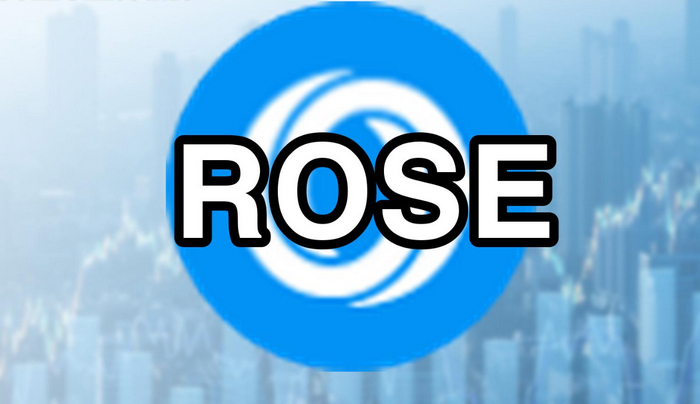-
 Bitcoin
Bitcoin $94,743.1795
-1.16% -
 Ethereum
Ethereum $1,815.8488
-1.09% -
 Tether USDt
Tether USDt $1.0003
-0.02% -
 XRP
XRP $2.1673
-1.11% -
 BNB
BNB $588.3192
-1.92% -
 Solana
Solana $145.2391
-0.95% -
 USDC
USDC $1.0001
0.02% -
 Dogecoin
Dogecoin $0.1715
-2.19% -
 Cardano
Cardano $0.6771
-3.18% -
 TRON
TRON $0.2477
0.98% -
 Sui
Sui $3.2506
-2.28% -
 Chainlink
Chainlink $13.9640
-1.67% -
 UNUS SED LEO
UNUS SED LEO $9.0808
1.35% -
 Avalanche
Avalanche $20.0342
-2.36% -
 Stellar
Stellar $0.2679
-0.26% -
 Toncoin
Toncoin $3.0222
-1.90% -
 Shiba Inu
Shiba Inu $0.0...01276
-1.27% -
 Hedera
Hedera $0.1773
-1.67% -
 Bitcoin Cash
Bitcoin Cash $358.6876
-0.85% -
 Hyperliquid
Hyperliquid $20.0596
-4.42% -
 Litecoin
Litecoin $85.6724
-0.40% -
 Polkadot
Polkadot $3.9570
-1.26% -
 Dai
Dai $1.0000
0.00% -
 Monero
Monero $278.1086
1.21% -
 Bitget Token
Bitget Token $4.3321
-0.93% -
 Ethena USDe
Ethena USDe $1.0004
-0.02% -
 Pi
Pi $0.5926
1.19% -
 Pepe
Pepe $0.0...08193
0.52% -
 Aptos
Aptos $5.1325
-0.73% -
 Uniswap
Uniswap $5.0337
-1.09%
What is the use of ROSE coin? The concept, value and practical application of ROSE coin
The Oasis Network's ROSE coin empowers users to stake, pay gas fees, govern the network, and exchange value within the ecosystem, driving the decentralized data economy.
Nov 04, 2024 at 06:19 am

What is ROSE Coin?
ROSE coin is the native token of the Oasis Network, a blockchain platform designed for data privacy and scalability. It serves multiple functions within the Oasis ecosystem, including:
1. Staking and Consensus:
- ROSE holders can stake their tokens to participate in the consensus mechanism and secure the network.
- Stakers earn rewards for contributing to the network's security and validity.
2. Gas Fees:
- ROSE is used to pay for transaction fees on the Oasis Network.
- These fees cover the computational resources required to process transactions.
3. Governance:
- ROSE holders have the right to vote on network upgrades, proposals, and other governance decisions.
- This allows the community to influence the direction of the Oasis Network.
4. Exchange of Value:
- ROSE can be traded on cryptocurrency exchanges to facilitate the exchange of value with other users.
Concept of ROSE Coin
Oasis Network's unique architecture relies on ROSE coin as:
- Fuel: ROSE powers the various operations within the Oasis ecosystem, such as data tokenization, computation, and transaction processing.
- Economic Incentive: Staking rewards incentivize users to participate in network security and governance.
- Value Capture: ROSE's value is driven by the demand for decentralized data solutions and the practicality of its ecosystem.
Practical Application of ROSE Coin
ROSE coin has practical applications in various industries, including:
- Healthcare: Facilitating secure data sharing and analytics in healthcare systems.
- Financial Services: Enabling the tokenization of financial assets and ensuring data privacy in financial transactions.
- Supply Chain Management: Tracking goods and ensuring data integrity throughout supply chains.
- Government: Protecting sensitive data and enabling secure data exchange in government operations.
Conclusion
ROSE coin plays a vital role in the Oasis Network, serving as a means of staking, paying gas fees, participating in governance, and facilitating value exchange. Its unique architecture and practical applications make it a compelling option for individuals and organizations looking to leverage the power of decentralized data solutions while maintaining data privacy.
Disclaimer:info@kdj.com
The information provided is not trading advice. kdj.com does not assume any responsibility for any investments made based on the information provided in this article. Cryptocurrencies are highly volatile and it is highly recommended that you invest with caution after thorough research!
If you believe that the content used on this website infringes your copyright, please contact us immediately (info@kdj.com) and we will delete it promptly.
- Bitcoin (BTC) price dips to $95.398,74 this Sunday, May 4, 2025, with a daily drop of 1%
- 2025-05-05 08:20:12
- Bitcoin (BTC) price was quoted at $95.398,74 this Sunday, May 4, 2025, with a daily drop of 1%
- 2025-05-05 08:20:12
- Bitcoin [BTC] miners are unusually calm post-halving
- 2025-05-05 08:16:34
- Best Crypto Exchanges in the Netherlands
- 2025-05-05 08:10:16
- Billionaire Ricardo Salinas Goes All-In on Bitcoin: “Buy Everything You Can”
- 2025-05-05 08:10:16
- US Bitcoin ETFs Attract Almost $2B In Deposits Despite Market Correction
- 2025-05-05 08:10:15
Related knowledge

What is Ethereum’s Slashing mechanism and how to punish malicious behavior?
Feb 20,2025 at 03:08am
Key PointsOverview of slashingDifferent types of slashing in EthereumIncentives and consequences of slashingIdentifying and reporting slashed validatorsOngoing discussions and potential improvementsEthereum's Slashing Mechanism: Punishing Malicious BehaviorEthereum's slashing mechanism is an essential tool for ensuring network security and punishing mal...

What is the verifier node of Ethereum and how to become a verifier?
Feb 19,2025 at 06:00pm
The Verifier Node of Ethereum: A Comprehensive GuideKey Points:What is a Verifier Node?How to Become a Verifier NodeResponsibilities and Rewards of a Verifier NodeMinimum Requirements for Becoming a Verifier NodePotential Difficulties in Running a Verifier Node1. What is a Verifier Node?A Verifier Node is an independent entity on the Ethereum network th...

What is Ethereum’s staking, and how to participate and earn money?
Feb 19,2025 at 04:37pm
Key Points:Understanding Ethereum's Staking MechanismSteps to Participate in StakingBenefits and Rewards of StakingSecurity and Risk ConsiderationsTechnical Requirements and Hardware OptionsPotential Challenges and Troubleshooting TipsFAQs on Ethereum StakingWhat is Ethereum's Staking?Proof-of-Stake (PoS) is a consensus mechanism used in blockchain netw...

What is Ethereum’s DAO (Decentralized Autonomous Organization) and how does it work?
Feb 20,2025 at 03:12am
Key PointsDefinition and Structure of a DAOGovernance and Decision-Making in DAOsBenefits and Use Cases of DAOsChallenges and Limitations of DAOsWhat is Ethereum's DAO (Decentralized Autonomous Organization) and How Does It Work?Definition and Structure of a DAOA Decentralized Autonomous Organization (DAO) is an innovative governance and management fram...

What is Ethereum's multi-signature wallet and how to improve security?
Feb 20,2025 at 02:18pm
Key Points:Understanding the Concept of a Multi-Signature WalletBenefits and Drawbacks of Multisig WalletsRequirements for Setting Up a Multisig WalletStep-by-Step Guide to Generating a Multisig WalletImplementing Strategies for Enhanced Security1. Understanding the Concept of a Multi-Signature WalletA multi-signature (multisig) wallet in the Ethereum e...

What is Ethereum's oracle and how to provide data for smart contracts?
Feb 21,2025 at 01:30am
Key Points:Understanding the concept of oracles in EthereumExploring different types of oraclesDetailed guide on how to provide data for smart contractsAddressing potential challenges and considerationsWhat is Ethereum's Oracle?Oracles are crucial components in the Ethereum ecosystem, enabling smart contracts to access real-world data and off-chain even...

What is Ethereum’s Slashing mechanism and how to punish malicious behavior?
Feb 20,2025 at 03:08am
Key PointsOverview of slashingDifferent types of slashing in EthereumIncentives and consequences of slashingIdentifying and reporting slashed validatorsOngoing discussions and potential improvementsEthereum's Slashing Mechanism: Punishing Malicious BehaviorEthereum's slashing mechanism is an essential tool for ensuring network security and punishing mal...

What is the verifier node of Ethereum and how to become a verifier?
Feb 19,2025 at 06:00pm
The Verifier Node of Ethereum: A Comprehensive GuideKey Points:What is a Verifier Node?How to Become a Verifier NodeResponsibilities and Rewards of a Verifier NodeMinimum Requirements for Becoming a Verifier NodePotential Difficulties in Running a Verifier Node1. What is a Verifier Node?A Verifier Node is an independent entity on the Ethereum network th...

What is Ethereum’s staking, and how to participate and earn money?
Feb 19,2025 at 04:37pm
Key Points:Understanding Ethereum's Staking MechanismSteps to Participate in StakingBenefits and Rewards of StakingSecurity and Risk ConsiderationsTechnical Requirements and Hardware OptionsPotential Challenges and Troubleshooting TipsFAQs on Ethereum StakingWhat is Ethereum's Staking?Proof-of-Stake (PoS) is a consensus mechanism used in blockchain netw...

What is Ethereum’s DAO (Decentralized Autonomous Organization) and how does it work?
Feb 20,2025 at 03:12am
Key PointsDefinition and Structure of a DAOGovernance and Decision-Making in DAOsBenefits and Use Cases of DAOsChallenges and Limitations of DAOsWhat is Ethereum's DAO (Decentralized Autonomous Organization) and How Does It Work?Definition and Structure of a DAOA Decentralized Autonomous Organization (DAO) is an innovative governance and management fram...

What is Ethereum's multi-signature wallet and how to improve security?
Feb 20,2025 at 02:18pm
Key Points:Understanding the Concept of a Multi-Signature WalletBenefits and Drawbacks of Multisig WalletsRequirements for Setting Up a Multisig WalletStep-by-Step Guide to Generating a Multisig WalletImplementing Strategies for Enhanced Security1. Understanding the Concept of a Multi-Signature WalletA multi-signature (multisig) wallet in the Ethereum e...

What is Ethereum's oracle and how to provide data for smart contracts?
Feb 21,2025 at 01:30am
Key Points:Understanding the concept of oracles in EthereumExploring different types of oraclesDetailed guide on how to provide data for smart contractsAddressing potential challenges and considerationsWhat is Ethereum's Oracle?Oracles are crucial components in the Ethereum ecosystem, enabling smart contracts to access real-world data and off-chain even...
See all articles




















































































